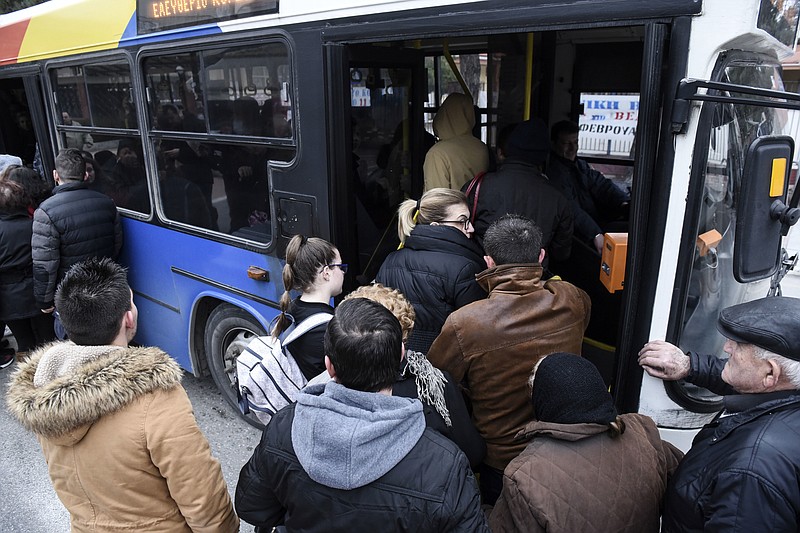THESSALONIKI, Greece (AP) - Authorities in the northern Greek city of Thessaloniki were evacuating an estimated 75,000 people Sunday in order to defuse a 500-pound (227-kilogram) unexploded World War II bomb found under a gas station.
The evacuation started at 7 a.m. (0500 GMT) but three hours later it was still continuing, delaying the expected start of the bomb-defusing operation. Police went house-to-house ringing bells and knocking on doors to remind people living within a 1.9-kilometer (1.18-mile) radius, mostly in the western suburb of Kordelio, to leave their homes.
Many people left in their cars, but some were being bused to schools and sports halls elsewhere in the city, where they can find food and shelter.
Others, like 26-year-old Alexander Bogdani and his wife, Anna Bokonozi, left on foot. The couple, pushing a stroller with their toddler daughter, were going to a place about 1 kilometer (over 1/2 mile) from their home.
"They have warned us ... we are afraid for the child," Bogdani said.
The city's main bus station was shut down, trains in the area were halted and churches canceled their Sunday services. The city also booked a 175-room hotel where people with limited mobility and their escorts were taken on Saturday.
"This is the largest population move in peacetime. People must be calm and not panic," Central Macedonia governor Apostolos Tzitzikostas said.
The operation to defuse the bomb, found under a gas station, is expected to last about six hours, authorities say.
Army bomb disposal experts will initially attempt to defuse the bomb's detonator, and then transport it to an army firing range, where they will figure out what further steps to take, said army spokesman Col. Nikos Fanios.
Fanios said the device's exterior was too degraded to be able to determine whether it was a German or an Allied bomb. But one resident says he recalls the day it fell.
"The bombing was done by English and American planes on Sept. 17, 1944. It was Sunday lunchtime," said Giorgos Gerasimou, 86, whose home is half a mile away.
The Allies were targeting local German rail facilities, he said.
Nazi Germany occupied Greece from 1941 until October 1944.
____
Follow Kantouris on Twitter on https://twitter.com/CostasKantouris
